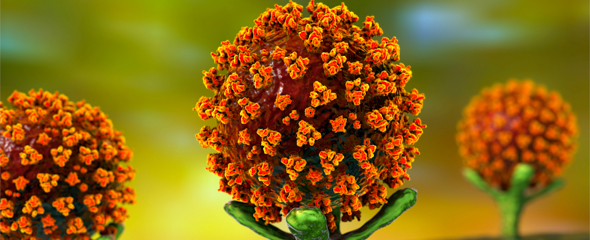Viruses are small particles - about 1000x smaller than human cells - that exploit their host's metabolism to replicate. There are many thousands of viruses circulating in the animal world that could spread to humans. SARS-CoV-2 has shown how quickly new viruses can spread worldwide. However, viruses also have to meet some requirements to be able to replicate in a new host.
In the cover story of the current issue of the HZI magazine InFact, HZI researchers Prof Luka Cicin-Sain, head of the research group "Immune Aging and Chronic Infections", and Prof Carlos Guzmán, head of the department "Vaccinology and Applied Microbiology", talk about the challenges new viruses present to us and how science is trying to keep up with them in vaccine development.
